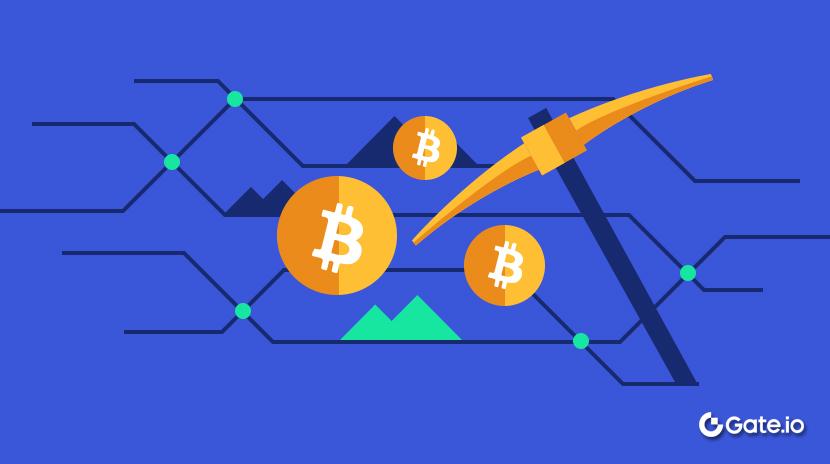"レモン問題"のレンズを通じてWeb3エコシステムにおける自己規制を探る
この記事は、暗号通貨における「レモン問題」を検証しており、ユーザーが良いプロジェクトと悪いプロジェクトを簡単に区別できないことによるエコシステムの信頼危機について述べています。これに対処するために、セルフレギュレーション、信頼構築、システムの許可無し状態を維持しながら、ゼロ知識証明(ZK)技術の使用を提案しています。このアプローチにより、暗号通貨エコシステムは、カジノ業界のように堅牢なセキュリティ対策を開発することができ、最終的には「レモン」を「桃」に変え、暗号通貨を経済生活の必須要素にすることができるでしょう。レモン問題と信頼危機
今日は、技術的な側面にあまり深入りする予定はありません。代わりに、暗号空間で直面する社会的問題について議論したいと思います。このトークのタイトルは「社会的コンセンサスと自己規制」です。まずはお聞きしたいのですが、ここに「レモン問題」について聞いたことがある方はいますか?この用語はお馴染みですか?
大丈夫、多くの人はいません、本当に。
アメリカの俗語では、「レモン」とは、あらかじめ信頼性がわからなかった車のことを指します。この言葉の起源については完全にはわかりませんが、それが「レモン」という意味です。
一方、良い信頼性のある車は「桃」と呼ばれます。実際、私自身も調べるまで知りませんでした。かわいい対比ですね。
The Lemon Problem is essentially an issue faced by used car dealerships. When you go to a used car market, it often feels a little sketchy because you don’t know whether you’re buying a “peach” or a “lemon.” This is also a major problem in the crypto industry today—everything may look like a “peach,” but in reality, many protocols turn out to be “lemons.”

自動車を購入するか、暗号プロトコルを使用する場合、それが「桃」である確率と「レモン」である確率が常にある。問題は、それにいくら支払う意思があるかです。期待値、つまり「桃」または「レモン」である可能性があるものに対して支払いたい加重平均価格はいくらですか?
あなたが支払いを意図する価格は、基本的に加重平均の概念に従います。それが「レモン」である確率には、それが「レモン」の価値に乗じたものがあります。それが「ピーチ」である確率には、それが「ピーチ」の価値に乗じたものがあります。

直感的には、確実に「桃」であることがわかっていれば支払う価格と、「レモン」であることがわかっていれば支払う価格の中間に位置するだろうと考えるかもしれません。しかし、なぜこれが奇妙なダイナミックなのでしょうか?なぜ果物の話をしているのでしょうか?
中古車ディーラーにはどんなインセンティブがありますか? もし皆が桃とレモンの間の価格を支払うと知っている場合、あなたのインセンティブは何ですか?

あなたのインセンティブは、レモンだけを売ることですか? もし人々が「レモン」の実際の価値以上の価格を支払う気持ちであれば、「桃」を売る理由はありません。 単に彼らに「レモン」を売って利益を得ることができます。
基本的にこれは私たちが詐欺と呼ぶものです。

ここで一時停止したいと思います。なぜなら、これは今日の暗号通貨業界での重大な問題である、レモン問題です。

現在、暗号通貨市場では、このレモン問題のため、「もも」という価値のあるものを見つける確率が実際に低下しています。少ない人々が「もも」を作ることに快く思っていないのは、製造コストが高いためであり、「レモン」の販売業者が市場を氾濫させているからです。彼らは機会を見て、「わぁ、私は'もも'と誤解して高値で買いたい人々に'レモン'を売ることができる」と考えています。その結果、ユーザーは信頼を失い、エコシステムへの参加が少なくなっています。これは完全に理解できる状況です。
この時点で、私はすでにあなたの中のいくつか、少なくとも架空の批評家の声が聞こえるのが分かります。
これは許可されていないシステムの価格です。 良いものと悪いものを受け入れなければなりません。 それはまるで「30%の暗号割引」のようです-それに対処するしかありません。
しかし、レモン問題は一度きりの費用ではなく、それは死の螺旋です。
信頼が低下すると、「桃」が「レモン」を上回るのは難しくなります。最終的には、「桃」が市場から退出し、「レモン」だけが残ります-これは良い状況ではありません。

だから、消費者が「レモン」を特定するのを助ける方法を見つける必要があるのです。なぜなら、そうしなければゲイリーがやることになるからです。彼はすでにそのために一生懸命取り組んでいます。これが、私が主張する理由です。暗号通貨の革新の精神を守りながら、レモン問題に取り組むためには、ある形の自己規制が必要です。
今、これを同様の問題に取り組んできた産業と比較してみましょう。これは議論の余地があるかもしれません。
カジノモデル:安全で公正な信頼メカニズムの構築
Okay, 私は何を話しているのでしょうか?
私は暗号空間がカジノであると言っているのでしょうか?
いいえ、私は暗号通貨業界は実際にはカジノよりも悪いと言っています。

少なくとも、私たちはカジノと同じくらい優れている必要があります。暗号通貨が成功するためには、カジノが得意とすることを取り入れる必要があります。
私たちは少なくともカジノがうまくやっていることをしなければなりません。
私はそれを見る価値があると思います。それが次に言うことです。

カジノは公正さとセキュリティへの重点を知られています。積極的にこれを推進しています。なぜこのようにするのでしょうか? カジノが不正操作されていないことを証明するために、大きな努力を払いました。もちろん、明らかに不正操作されている方法を除いては。
いくつかの例を挙げてみましょう、これは自動カードシャッフラーです。
なぜ彼らはそれをするのですか?なぜディーラーが手動でカードを配る代わりにこれを使用したのですか?
彼らはあなたに証明したいからです。あなたがだまされていないことを—at least、ハウスエッジを超えたどんな方法でも。彼らはあなたに検証可能な無作為性を示したいのです。
彼らは不正行為を禁止し、他のカジノと不正者情報を共有しています。なぜ彼らは不正者に結託することを望んでいるのですか?もし私がラスベガスのフラミンゴカジノにいて、不正者を見つけたら、なぜ私はこの情報を勝者と共有するのでしょうか?
カジノは、サイコロの重さが均等に分配されていることを確認するために精密なダイスキャリパーを使用します。これらすべての措置は、消費者に詐欺を受けていないと説得するために存在しています。あなたは確率に対してプレイしているかもしれませんが、少なくともゲーム自体は公平です。

政府とカジノは実際には一緒に投資して、カジノを安全にすることに取り組んでいます。人々はカジノが非常に合法で急速に成長していることを忘れがちです。イーサリアムは今年には20億ドルの手数料を発生させると予測されています。一方、世界のカジノ産業は収益3000億ドルに達する見込みです。
マーケティングセキュリティは、カジノが政府と協力して非常に優れた仕事をするものです。彼らは規制当局を説得し、カジノを安全にすることがすべての人に利益をもたらすと主張しています。
Okay, how does this work? This is a virtuous cycle, more trust equals more investment in fairness and security.

そして、我々は分散化された方法でこれを達成する必要があります。私たち全員が知っていることの1つは、今週一度も言及されていないことですが、それは3文字の単語です: FTX。誰もそれについて話していません。私たちはそれがただの悪い夢だったと思いたがります。しかし実際には、悪い行為者が全体のエコシステムに対する信頼を完全に侵食しました。被害者だけでなく、すべての人々の間で。
ゼロ知識証明駆動型の自己規制と社会的合意
セキュリティと正当性を証明する技術は持っていますが、それをソーシャルレイヤーで実装する必要があります。だから、今週の義務的な言及をしましょう−ゼロ知識(ZK)ですね?これは私たち全員が馴染みのある用語です。
私たちは完全性を証明する能力を持っています-アイデンティティ、評判、計算の正確性を検証します。

問題は技術ではなく、私たちはこれらの会議に出席し続け、常に技術的な解決策について話し続けていますが、実際の問題の一部は社会的な合意とイデオロギーにあるということです。
私たちはすでに、アプリケーションとユーザーを保護することに焦点を当てた新しい社会的な合意形成の能力を持っています。他者が規制する前に、自己規制を行う必要があるということを受け入れる必要があります。
今、私たちは極端なイデオロギー的立場を取る傾向があります-完全に許可されているか、完全に許可されているか。これはしばしば黒か白か、全てか無に見えます。
しかし実際には、これらの2つの極端の間に社会的な合意の幅広いスペクトルがある。
ZKとASICの研究がどのようなものを解き放つかの例をお示ししましょう。それは従来のイデオロギー的思考に挑戦するものです。第三者検証システムを通じて資金の正当性を証明できるトークン保有者だけが参加を許可される流動性プールを想像してください。このモデルは同時に許可なしと許可ありの両方であることができます。私はこれらのルールでプールを作成することができ、あなたは参加するかどうかを自由に決定できます。
これは自発的なパターナリズムの考えを導入するものであり、特定のコミュニティ(この部屋の人々のような)内で共有された社会的合意が安全な運用のためのルールを決定する一方、ユーザーは依然としてそれに参加するかどうかを選択する能力を保持しています。社会的または民主的な許可の形態が受け入れられないとされる、バイナリーの、黒か白かの選択ではありません。
もうひとつの例は、分散型の「クリーニング」プロバイダーという概念で、ヴィタリックと共同創業者のザック・ウィリアムソンが模索しているものです。このモデルでは、個人が資金と取引の正当性を検証するソーシャルグラフが導入されています。ユーザーは行動を観察し、「これは私たちが関連付けたくないものだ」と集団で判断することができます。これは中央集権化とは根本的に異なり、検閲とは根本的に異なります。その代わりに、それは民主的な形の社会的コンセンサスを表しており、コミュニティとして、エコシステム内でどのような行動を容認しないかを決定します。
ここでの目標は自由を制限することではなく、異なるプロトコル設計における利用者の選択肢を増やすことです。
したがって、ZKはベースレイヤーで許可なく機能することを可能にし、アプリケーションレイヤーでは、許可されたソーシャルコンセンサスを可能にします。
これに関する多くの実例がすでに存在しており、準備金の証明、フィッシング対策メカニズム、オプトインコンプライアンスプール、資金の正当性証明に関する議論が展開されています。
しかし、最終的に言いたいのは、私たちが言っていることは:私たちは、zachXBTをZKに変える必要があるということです- 信頼と中央集権的なコンプライアンスへの依存を数学的証明と社会的合意で置き換える必要があります。
要約すると、ZKは3つの主要な進歩を可能にする必要があります。
まず、ユーザーの選択肢を保ちながら自己規制とコンプライアンスが必要です。コミュニティとエコシステムとして、自己規制についての真の対話をしていませんでした。主に、規制当局が私たちに気づかないことを願っているだけです。
しかし、これを続けてもWeb3は成功しません。規制当局とユーザーの両方に、お互いを大切にし、ユーザーを大切にすることを証明する必要があります。
選択肢を通じた自由、イデオロギーではない。ユーザーにイデオロギーを押しつけるべきではありません。代わりに、どこで参加したいかを決定する選択肢を提供しましょう。この空間が最終的に目指すのは、自由と自律です。
最後に、セキュリティを向上させ、信頼性を高め、暗号資産をオプションではなく必需品にする必要があります。政府は少なくとも有権者で構成されているはずなのに、なぜUberやAirbnbはかつては違法だったのに、今は合法なのだろうか?誰かが議会の階段に近づいてきて、「私が死ぬまで私のUberを取り上げることはできない」と言い、誰かがそれをしたので、個人的には、これを覚えているかどうかはわかりません。
暗号通貨を必要不可欠なものにし、経済生活の一部として組み込む方法の一つは、信頼性と安全性を確保し、ユーザーをサポートすることです。
これはレモンを桃に変える方法です。

このエディションには、YouTubeで公開されたBlueYard Capitalのビデオが含まれています: “Jon Wu (Aztec) @ If Web3 is to Work… A BlueYard Conversation”
オリジナルビデオリンク: https://www.youtube.com/watch?v=o17GnPJXxgU&t=244s
免責事項:
関連記事


ブロックチェーンについて知っておくべきことすべて

ステーブルコインとは何ですか?

流動性ファーミングとは何ですか?

分散型台帳技術(DLT)とは何ですか?
